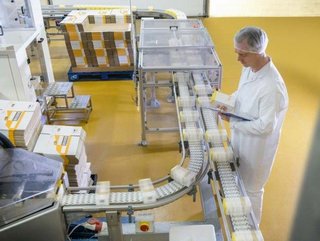Accenture urges stretched food supply chains to collaborate

Global food supply chains are reacting to a famine mentality, and such short-termism is impeding the development of resilient food supply networks, a new Accenture report concluded. Collaboration and agility, it says, is the key to building resilient food product supply chains.
The report – Food supply chain: Reacting to a famine mentality – says food producers are focused on short-term supply chain disruptions brought about by the pandemic and crises in Ukraine and Indonesia.
It adds that with a growing number of countries declaring limits on agriculture exports, producers need to gear up for a longer-lasting and more transformational demand side challenge: the end of “abundance thinking” among consumers.
Agility key to food supply chain, says Accenture CEO Sweet
Julie Sweet, Accenture Chair and CEO is quoted in the report: “It comes back always, again, to understanding the market and being much more agile, and being able to respond to the market.”
The report continues: “The new mentality of scarcity, and resulting demand reactivity, has huge implications on supply chain planning, especially when it comes to adopting innovation for sustainable growth.
“This volatile consumer demand mindset, combined with supply-side challenges, will be difficult to reverse.”
Accenture adds the good news is that food producers can “strengthen resilience using existing relationships and increase supply chain agility with creative solutions”.
On the subject of collaboration in food supply chains, it says: “For food producers, successful sourcing no longer means procuring for the lowest cost. In the next decade, leaning into who you know and how well you know them will also be a key factor.
“Post-pandemic, the emphasis on human connection in negotiations has stimulated new levels of trust between food producers and suppliers. This has paved the way for the deeper collaboration necessary to respond more flexibly in a volatile consumer landscape.”
Food producers seeking closer relations with retailers
It adds that leading food producers are now seeking deeper relationships with retailers “to increase demand predictive capabilities”, and that these collaborations “enable food producers to think creatively and harness bigger, structural and technology based solutions with a long term view”.
Accenture says food producers “don’t need to look far for creative solutions” and that the past “has a great deal of sources of inspiration”.
The report continues: “The reintroduction of regional production centres is allowing food producers to react quickly to local market demands, with consumers also benefiting from preferred local tastes.
“Localised food production also has other benefits, such as addressing the impact of increased shipping costs growing as a proportion of unit costs.”
As an example of this, it cites the case of the Accenture consumer packaged good client CPG that was able to reclaim lost revenue by adopting a regional production model.
“By shipping their products more densely, they reduced unit distribution costs and increased supply chain agility,” it said.
“Adopting such forms of creative thinking may be a necessary step,” the report concludes. “This is nothing new. In the 1930s, Campbell’s revolutionised food manufacturing, when it condensed its soup products and pushed product finalisation into consumers’ hands.”






